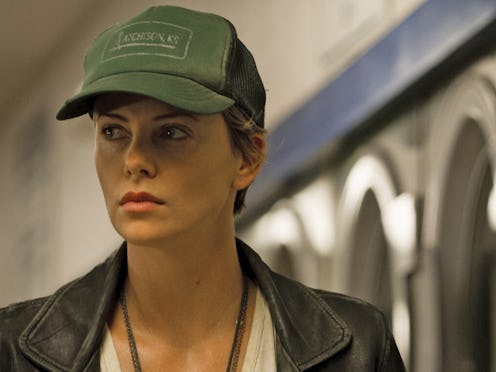Entertainment
Don't Compare 'Dark Places' Trailer To 'Gone Girl'

Although it's easy to see how one's mind could jump to doing this, I cannot stress this enough: One of the worst things you can do to author Gillian Flynn's Dark Places adaptation now that the trailer has been released is to compare it to the last movie adapted from one of Flynn’s works: Gone Girl.
Of course, the inclination to do so is understandable. Gone Girl, also a murder mystery story, was a tremendous critical hit and viable box office contender — why not bank on the popularity thereof to launch the same degree of interest in the next Flynn-based feature? Well, it’s because what we’re gearing up for probably isn’t the least bit similar to Gone Girl. That’s not to say that Dark Places won’t be a worthwhile viewing, but instead to suggest that the film will simply be a different animal altogether. Though both drawn from similar compositions, the resultant cinematic expositions aren’t necessarily beheld to the same mission statement.
For starters, the directors are extremely different: Dark Places director Gilles Paquet-Brenner is a moreover straightforward filmmaker, well versed in the mystery, crime, thrills, and even horror that promise to lace his approaching adaptation, for which he also wrote the screenplay. Then, on the other hand, we have David Fincher, helmer of Gone Girl. While the film benefited from a swift, rich script — penned by Flynn herself with an impressive understanding of the story alterations demanded by the shift in medium from page to screen — it was Fincher’s omnipresent hand that strung it to points of near genius.
Fincher, a master of deconstruction, saw something in Gone Girl worthy of more than simple adaptation. Using Flynn’s immensely popular pulp novel, Fincher visited the ubiquitous tenets of American society, exploring the criminal conjectures of relationships and marriage incarnate. Through the morbid hijinks of Nick and Amy Dunn, he grappled likewise with the constructs of family, the law, and American showbiz, all the while lending the absolute bulk of his attention to how gender plays a role in every facet of social expectation.
Fincher turned Gone Girl into a vast experiment. It was an inventive, big ideas-laden essay about contemporary sexism and social mores, and through it all an absolute hoot. He knew when to vie for chills, for gravity, and for desperation, but he also knew when to lighten the load with an objective glance at Ben Affleck’s dynamite goofiness. A rainbow of tone and theme, Gone Girl was way more than any reader — even the most effusive — could have expected the adaptation to be.
We don’t know exactly what we’ll get with Dark Places, but it’s more than likely not the same grand exploit that Fincher pursued in developing Gone Girl: With Charlize Theron at the center of the film, we’re promised a good performance, and with wonderful character actors like Christina Hendricks, Chloë Grace Moretz, and Corey Stoll lining the bleachers, we can expect a healthy ensemble. Additionally, with another elaborate mystery as crafted by Flynn, we’re in for at least a halfway decent story.
But, will we get a sweeping social satire that encompasses every notion from #YesAllWoman to Nancy Grace to the institution of marriage? A pitch black comedy with a thoroughfare of moments that incur louder laughter than almost any other feature in the calendar year? An aesthetic so sophisticated as to perfectly juggle choking tension and raucous bewilderment? That doesn’t quite look to be what Paquet-Brenner has in mind, and there's nothing wrong with that: What we’ll get in Dark Places could very well be a great murder mystery drama, but to expect the next Gone Girl is setting up for defeat.
Images: A24; Giphy